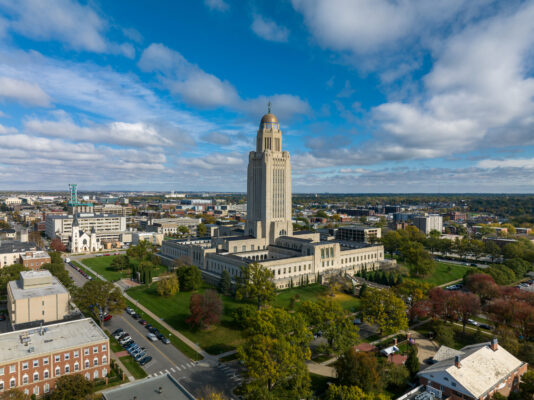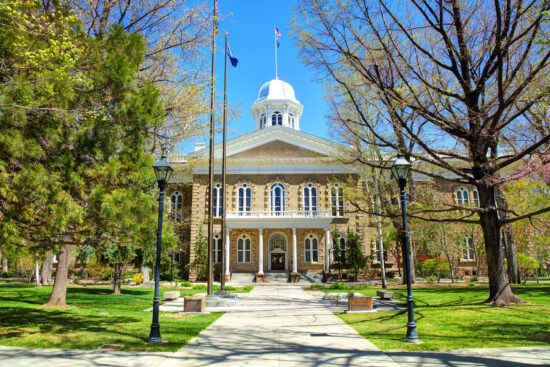When Roe v. Wade and Doe v. Bolton were handed down by the United States Supreme Court in 1973, the question everyone was asking was, “When does human life begin?” Every honest person already knew the answer to that question, and every honest person knows the answer today. Human life begins at conception. When a living human sperm unites with a living human egg, fertilization takes place, and the new organism, the human embryo, begins to develop.
Since that is clearly the case, why doesn’t that fact lead everyone to the conclusion that elective abortion is the killing of a living member of the human species and is, therefore, morally wrong? That’s a very important question, and we will explore the answer here.
Today’s question: Who is a person?
The question being asked today is not when does human life begin, but, “Who is a person, and what do we owe persons?” Most people believe that we have a moral obligation not to unnecessarily harm another person. So the question, “Who counts as a person?” is crucial to understanding our ethical responsibility toward other persons.
The legacy of Peter Singer
Arguably, the thinker who has done more to advance the notion of personhood in the 21st century than anyone else is Peter Singer. Australian by birth, Singer has occupied the Ira W. DeCamp chair of bioethics at Princeton University since 1999. In his 1975 volume, Animal Liberation, and in numerous other writings, Singer has advanced the notion that what grounds our moral obligation not to harm others is their personhood. To make things more interesting, Singer believes that not all persons are human beings, and not all human beings are persons.
What makes a living thing a person? According to Singer, only beings who are self-aware or self-conscious are persons. In particular, persons are self-conscious, sentient beings. That is, they are living creatures who can experience pleasure or pain (sentient) and who can consciously reflect, however primitively, on that experience of pleasure or pain (self-aware). They are the sorts of creatures who when pricked with a needle say to themselves something like, “Ouch, that hurts! I wish that pain would stop!” They do not just react negatively to noxious stimuli (an oyster or a roach does that); they self-consciously resist and at some level lament the harm.
For Singer, self-aware, sentient creatures should not be subjected to suffering. He believes that great apes and dolphins are self-aware, sentient beings, so they have a “right to life”—that is, a right not to be unnecessarily harmed; so do members of the bovine (cow) and porcine (pig) species. But what about fish and fowl? Are they self-aware, sentient beings? Singer isn’t sure. It’s difficult to know what it’s like to be a chicken or a flounder. So, just to be safe, Singer and his wife, Renata, are long-time vegetarians who stopped eating meat in 1971.1https://www.motherjones.com/politics/2006/05/chew-right-thing/
Singer is not alone, either in his vegetarianism or in extending the right to life to animals. In 2008, the Spanish parliament announced it supported granting legal rights to gorillas, chimpanzees, and orangutans.2https://www.discovermagazine.com/planet-earth/great-apes-have-the-right-to-life-and-liberty-spain-says Thomas White, a philosopher at Loyola Marymount University in Redondo Beach, California, has argued that dolphins are “non-human persons” who have a “right to life.”3https://www.sciencemag.org/news/2010/02/dolphin-person and https://www.bbc.com/news/world-17116882 In 2010 in Helsinki, Finland, the Collegium for Advanced Studies issued the Declaration of the Rights of Cetaceans to affirm the right to life, liberty, and well-being to whales and dolphins.4https://www.cetaceanrights.org/ The extension of the right to life to animals may eventually have implications for the right to life of non-animal “persons” like robots and other artificial intelligence (AI).
Implications for humans
In the meantime, defining personhood as sentient self-awareness not only has implications for animals, but also for humans. On Singer’s view, human embryos and fetuses are not sentient and self-aware. Even though they are human, they are not persons. There is no harm in killing nonsentient, nonself-aware members of the species Homo sapiens. In fact, species membership has nothing to do with personhood for Singer. In fact, species membership has nothing to do with personhood for Singer. Privileging species membership is “speciesism,” or viewing humans as more morally important than animals, by Singer’s way of thinking. Like other forms of irrational prejudice—racism, sexism, and other “isms”—speciesism is unethical and immoral. Just because a living being is human does not mean it is wrong to harm him or her, says Singer.
In his book Practical Ethics, Singer claims, “Human babies are not born self-aware, or capable of grasping that they exist over time. They are not persons . . . the life of a newborn is of less value than the life of a pig, a dog, or a chimpanzee.”5Peter Singer, Practical Ethics, (Cambridge University Press, 1979), pp. 122–123. In 2000, he clarified his view, affirming that normal newborns are sentient, but not self-aware.6https://www.nytimes.com/2000/03/12/nyregion/l-peter-singer-clarifies-his-attitudes-on-sentience-210803.htm In 2015, disability activists launched an effort to get Singer removed from his academic post because of his public support for euthanizing disabled infants.7https://www.washingtontimes.com/news/2015/jun/16peter-singer-princeton-bioethics-professor-faces-c/
The imago Dei and the dignity of human beings
Personhood—at least as philosophically defined—can be problematic. Worse, it can lead to horrific abuse. So it is important to understand the basis for human exceptionalism, the view that we owe human beings special respect.
A theological foundation
Theologically speaking, personhood has a rich and robust legacy. There are non-human persons, including God in three persons, Father, Son, and Holy Spirit. There are also angelic non-human persons. But what distinguishes human beings from other living creatures is not personhood per se, but the image of God (imago Dei).
In one of the clearest biblical texts on the subject, God himself declares human life to be distinct from other forms of life. After the catastrophic flood recorded in Genesis 6-8, God renewed his covenant with Noah and Noah’s children. Just as with his covenant with Adam and Eve in Genesis 2, God blessed Noah’s progeny, calling them to, “Be fruitful and multiply and fill the earth. The fear and terror of you will be in every living creature on the earth, every bird of the sky, every creature that crawls on the ground, and all the fish of the sea. They are placed under your authority” (Gen. 9:1-2 HCSB). The new humanity, like the old humanity, were to be good stewards of all that the Lord had made.
There was, however, something new. God declares, “Every living creature will be food for you; as I gave the green plants, I have given you everything. However, you must not eat meat with its lifeblood in it. I will require the life of every animal and every man for your life and your blood. I will require the life of each man’s brother for a man’s life” (vv. 3-5). Noah and his family are given permission to kill the animals for food. It should be noted that this is not permission to be cruel or to kill the animals indiscriminately. Stewardship, not exploitation, remains the overarching paradigm.
Nevertheless, a very pointed distinction was made between killing an animal and killing a human being. Dire consequences will result from the killing of another human being. This is underscored in Genesis 9:6a, “Whoever sheds man’s blood, his blood will be shed by man.” But why? What’s the difference between killing animals and killing human beings? How are they different? Genesis 9:6b offers the distinction: “for God made man in His image.” To kill an innocent human being, a member of the species Homo sapiens, is an affront to God himself, who made man in his image. The distinction is not personhood, at least as understood by Peter Singer. The distinction is the imago Dei.
God has made every human being in his image and after his likeness (Gen. 1:26-27). We have an obligation before God not to unnecessarily harm another human being. In addition, we are to love our neighbors as we love ourselves (Mark 12:31). Unborn human beings are image bearers of God. Disabled human beings are imagers of God. The frail elderly are image bearers of God. They are human beings deserving of respect, care, and protection because God himself has made them in his image.
Personhood debates depend on who is defining the terms. If “persons” are “sentient self-aware creatures and only sentient self-aware creatures” then Peter Singer may be right. But if respect for human life doesn’t depend on arbitrary definitions of personhood but on the revelation of Scripture about the nature of human life made in God’s image, then every human being has a right to life grounded in the sanctity of human life which has been declared sacred by the Creator himself.










